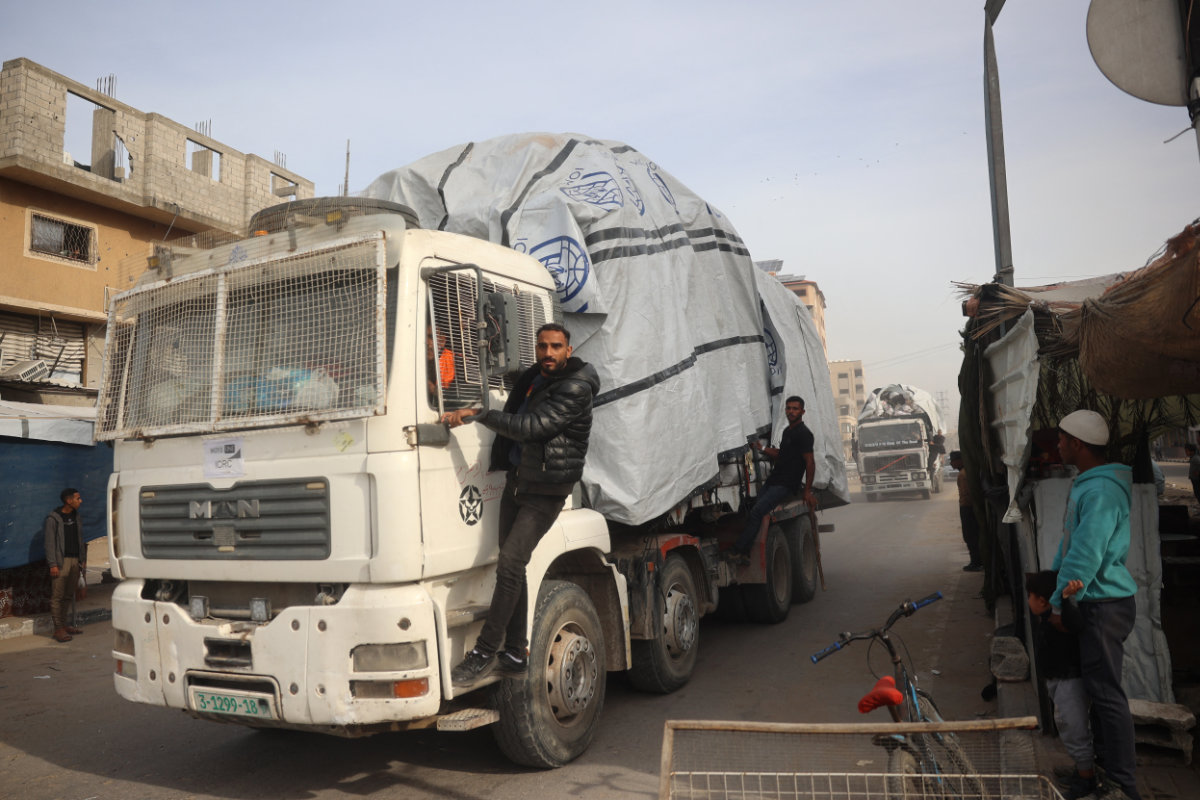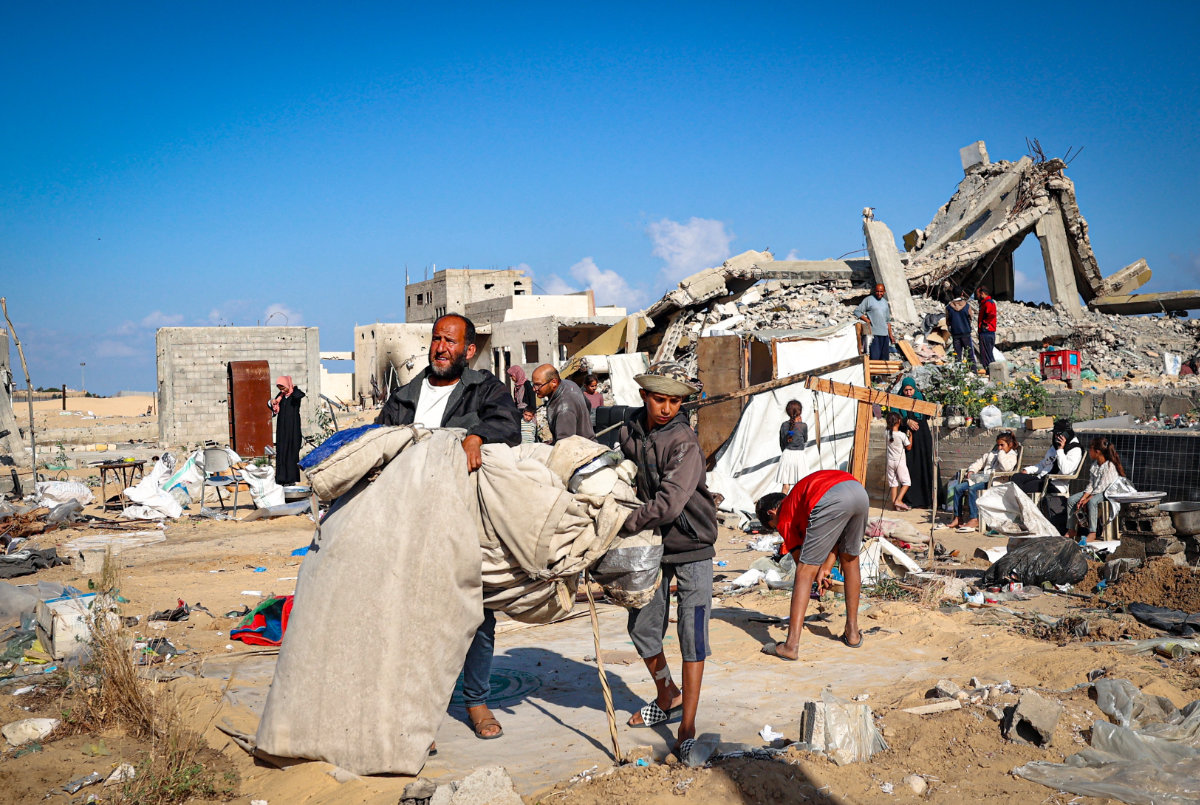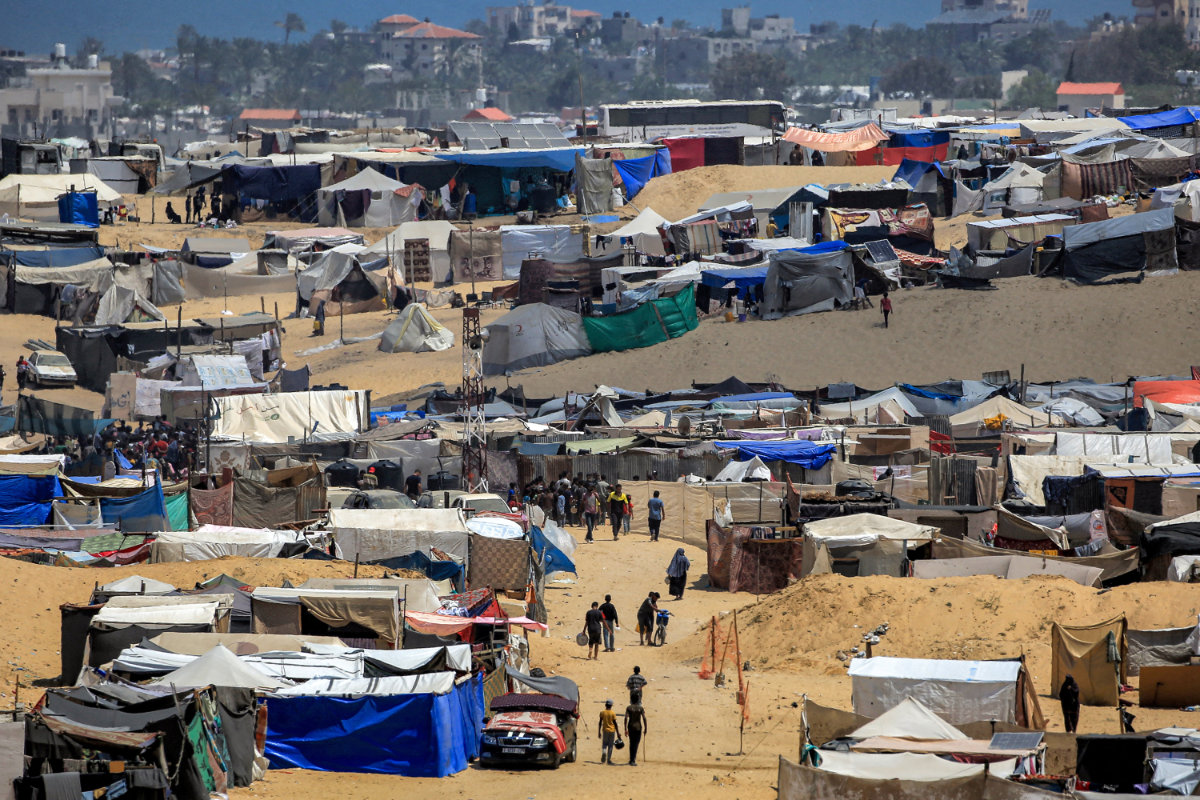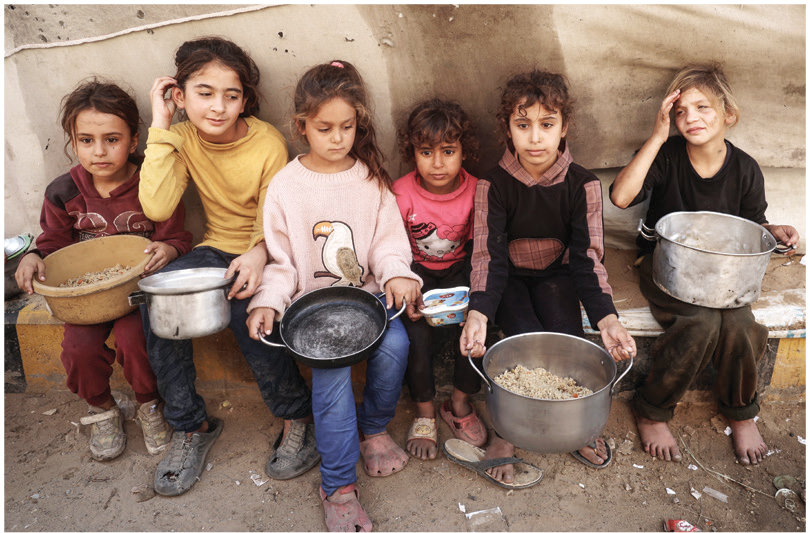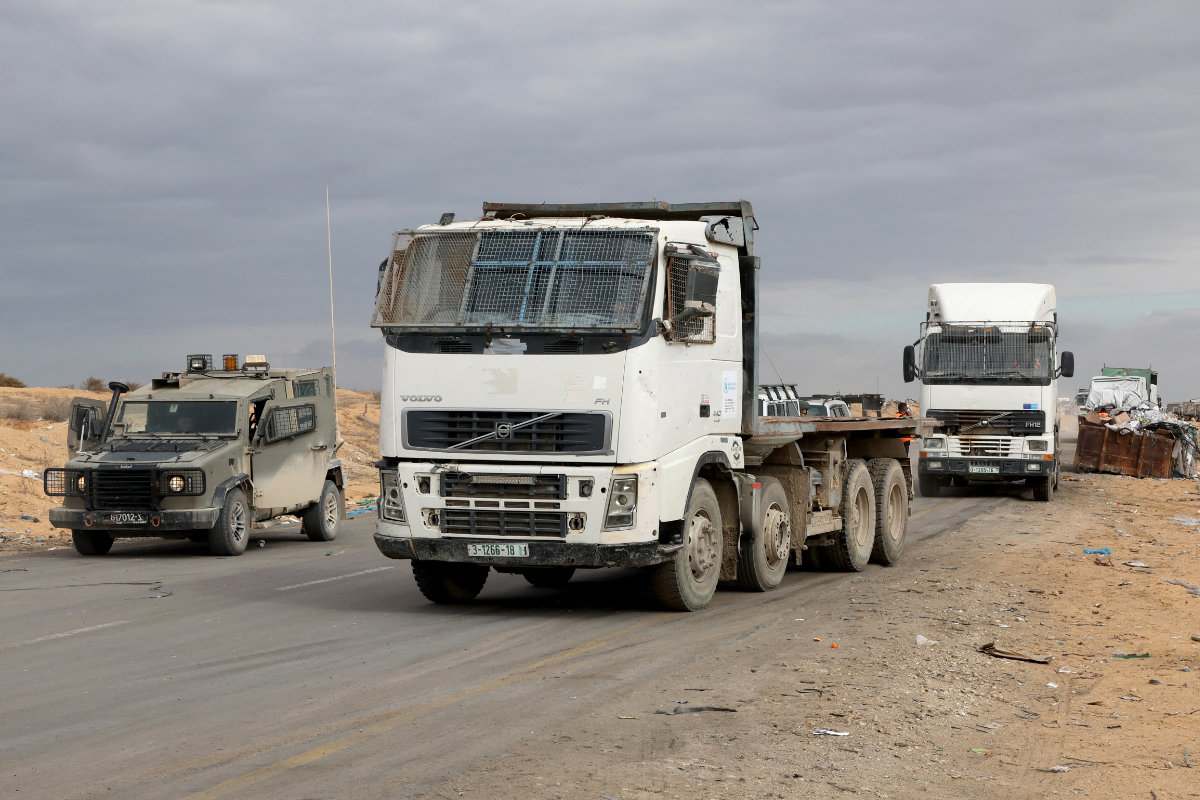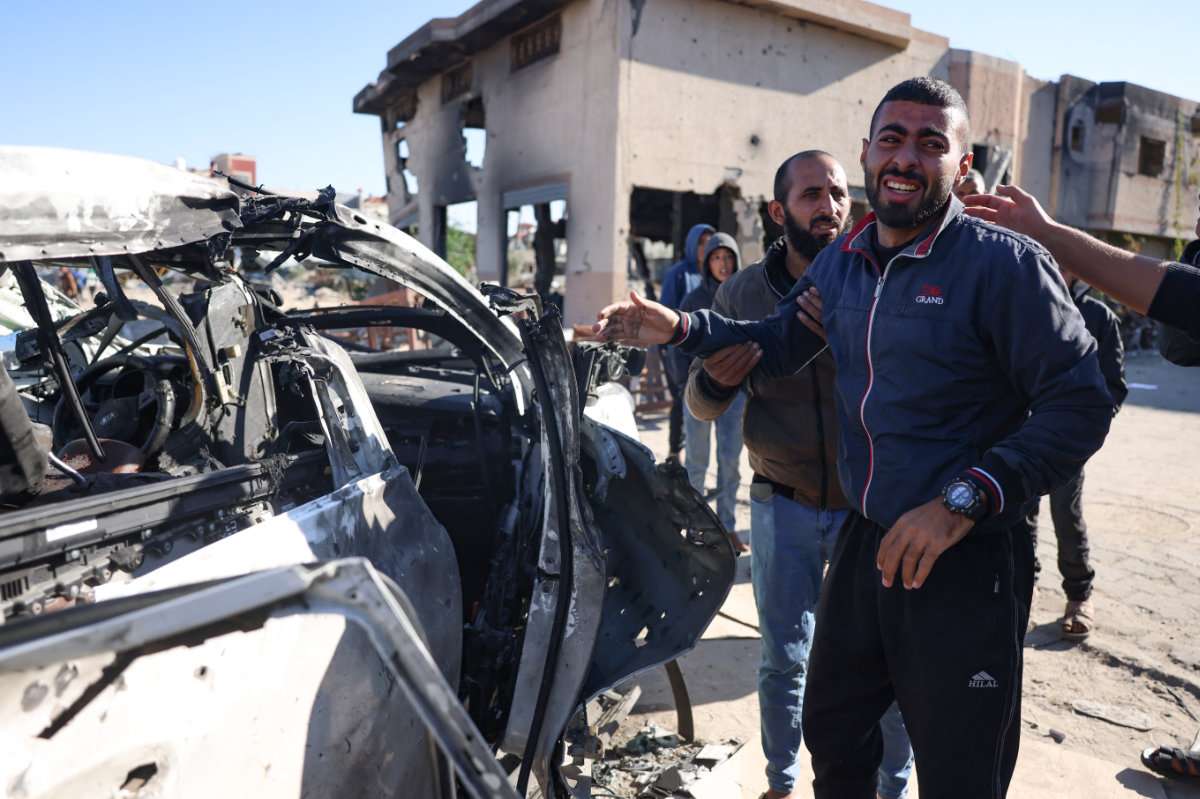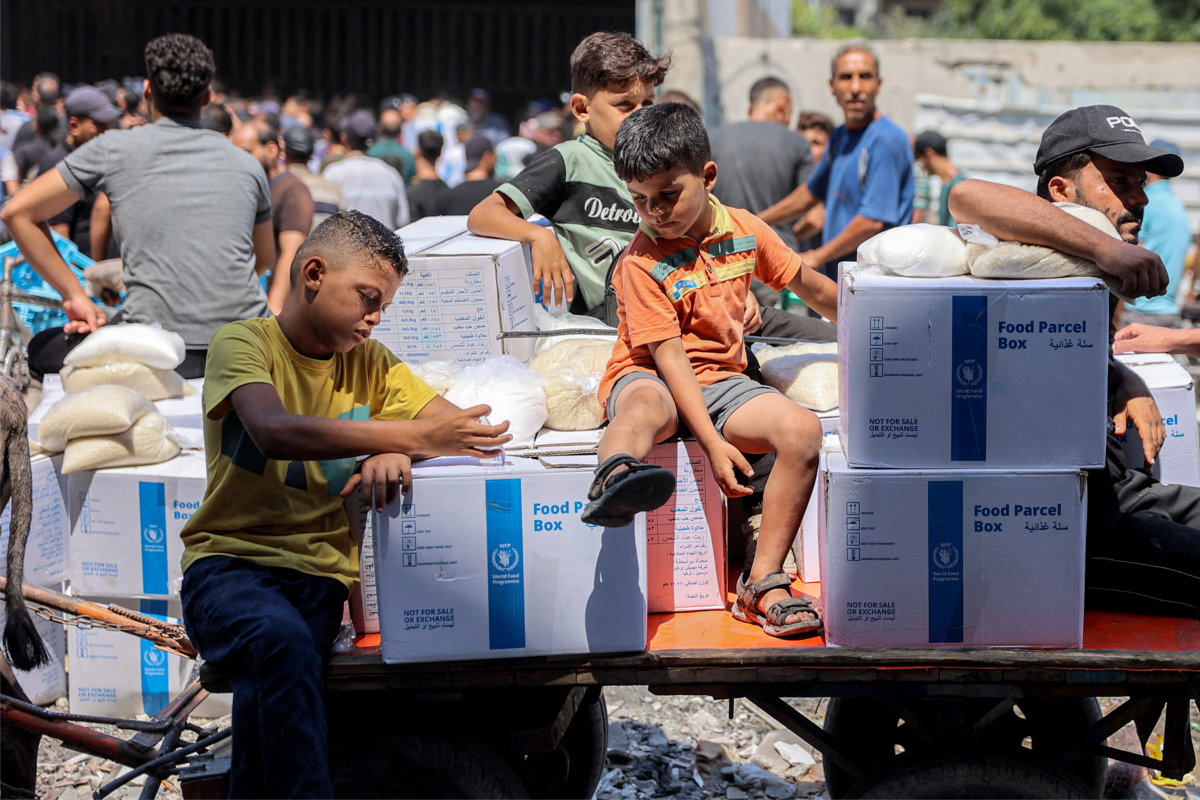BEIRUT/JERUSALEM: At least six people were killed in an Israeli air raid on a Hezbollah rescue facility in the heart of Beirut late Wednesday, according to the Lebanese health ministry.
The Israeli strike in the early hours of Thursday came after its forces suffered their deadliest day on the Lebanese front in a year of clashes against Iran-backed armed group Hezbollah.
Israel said it conducted a precise air strike on Beirut. Witnesses reported hearing a massive blast, and a security source said it targeted a building in central Beirut’s Bachoura neighborhood close to parliament, the nearest Israeli strikes have come to Lebanon’s seat of government.
Seven people were also wounded, Lebanese health officials said. A photo being circulated on Lebanese WhatsApp groups showed a heavily damaged building with its first floor on fire.
Three missiles also hit the southern suburb of Dahiyeh, where Hezbollah leader Hassan Nasrallah was killed last week, and loud explosions were heard, Lebanese security officials said. The southern suburbs came under more than a dozen Israeli strikes on Wednesday.
A day after Iran fired more than 180 missiles into Israel, Israel said on Wednesday eight soldiers were killed in ground combat in south Lebanon as its forces thrust into its northern neighbor.

The Israeli military said regular infantry and armored units joined its ground operations in Lebanon on Wednesday as Iran’s missile attack and Israel’s promise of retaliation raised concerns that the oil-producing Middle East could be caught up in a wider conflict.
Hezbollah said its fighters engaged Israeli forces inside Lebanon. The movement reported ground clashes for the first time since Israeli forces pushed over the border on Monday. Hezbollah said it had destroyed three Israeli Merkava tanks with rockets near the border town of Maroun El Ras.
Israeli Prime Minister Benjamin Netanyahu, in a condolence video, said: “We are at the height of a difficult war against Iran’s Axis of Evil, which wants to destroy us.
“This will not happen because we will stand together and with God’s help, we will win together,” he said.
Lebanon’s health ministry said Israeli air raids killed at least 46 people in the south and center of the country over the past 24 hours.
Iran said on Wednesday its missile volley — its biggest ever assault on Israel — was over barring further provocation, but Israel and the United States promised to hit back hard.
US President Joe Biden said he would not support any Israeli strike on Iran’s nuclear sites
in response to its ballistic missile attack and urged Israel to act “proportionally” against its regional arch-foe.
Biden joined a call with Group of Seven major power leaders on Wednesday to coordinate a response, including new sanctions against Tehran, the White House said.
G7 leaders voiced “strong concern” over the Middle East crisis but said a diplomatic solution was still viable and a region-wide conflict was in no one’s interest, a statement said.
Hezbollah said it repelled Israeli forces near several border towns and also fired rockets at military posts inside Israel.
The paramilitary group’s media chief Mohammad Afif said those battles were only “the first round” and that Hezbollah had enough fighters, weapons and ammunition to push back Israel.
Israel’s addition of infantry and armored troops from the 36th Division, including the Golani Brigade, the 188th Armored Brigade and 6th Infantry Brigade, suggested that the operation might expand beyond limited commando raids.
The military has said its incursion is largely aimed at destroying tunnels and other infrastructure on the border and there were no plans for a wider operation targeting the Lebanese capital Beirut to the north or major cities in the south.
1.2 million Lebanese displaced
Nevertheless, it issued new evacuation orders for around two dozen towns along the southern border, instructing inhabitants to head north of the Awali River, which flows east to west some 60 km (37 miles) north of the Israeli frontier.
More than 1,900 people have been killed and over 9,000 wounded in Lebanon in almost a year of cross-border fighting, with most of the deaths occurring in the past two weeks, according to Lebanese government statistics.
Caretaker Prime Minister Najib Mikati said that about 1.2 million Lebanese had been displaced by Israeli attacks.
Malika Joumaa, from Sudan, was forced to take shelter in Saint Joseph’s church in Beirut after being forced from her house near Sidon in coastal south Lebanon with her husband and two children.
“It’s good that the church offered its help. We were going to stay in the streets; where would we have gone?“
Iran described Tuesday’s missile assault as a response to Israeli killings of militant leaders, including Nasrallah, attacks in Lebanon against the group and Israel’s war against Palestinian Hamas militants in Gaza.
There were no casualties from the missile onslaught in Israel, but one person was killed in the occupied West Bank.






















